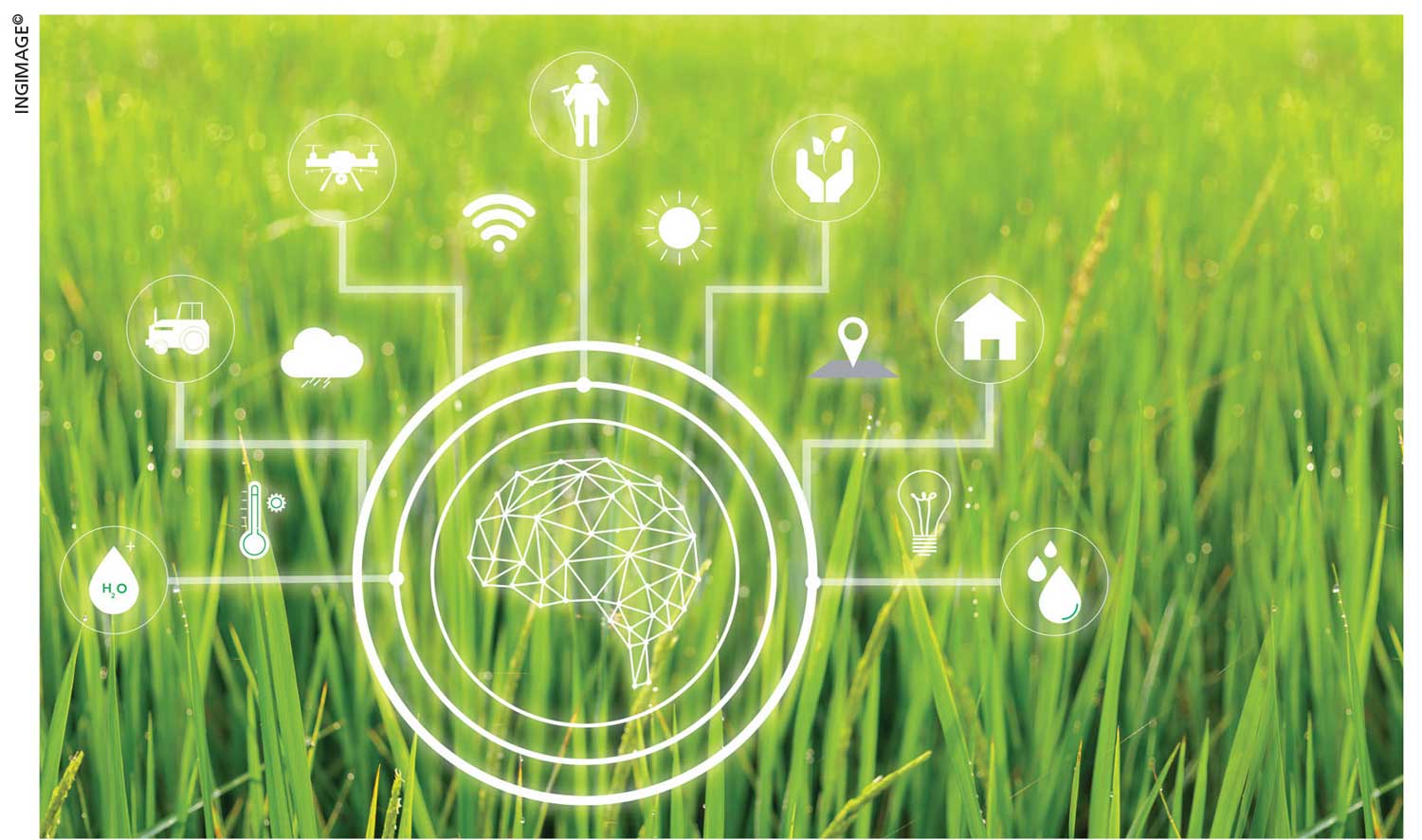AGRICULTURE SECTOR
PRECISION FARMING MANTRA
Akila Wijerathna discusses the convergence of IoT and farming in agriculture

In the evolving landscape of modern agriculture, farmers face a range of challenges from relentless pests and unyielding droughts to the farreaching consequences of climate change. As these uncertainties threaten global food security, the need for innovative solutions becomes more urgent than ever.
In recent years, the convergence of IoT and precision farming has revolutionised agriculture. Precision farming – or precision agriculture – is a data driven approach that leverages advanced technologies to optimise farming practices with unprecedented accuracy and efficiency.
The Internet of Things, which is a network of interconnected devices and sensors that can collect, exchange and analyse data, then transforms everyday objects into intelligent and responsive entities.
Therefore, data driven approaches that leverage the power of IoT devices have emerged as beacons of hope, which offer invaluable insights into predicting and combatting these agricultural hazards.
By harnessing the potential of such devices, these solutions enable the proactive identification of impending dangers and enhance overall efficiency.
The strategic allocation of essential resources such as water, fertiliser and pesticides – where needed – reduces costs and optimises yields. This reinforces the resilience of farming practices against the backdrop of uncertainty.
When integrated, IoT and precision farming create a powerful synergy, which enables farmers to gather real-time data from their fields, crops, livestock and equipment. This information is then used to make informed decisions, automate processes and tailor farming practices to the unique needs of each area in a given field.
From monitoring soil moisture levels and tracking the health of individual plants, to controlling irrigation systems remotely and efficiently managing resources such as water and fertiliser, IoT driven precision farming opens up a new realm of possibilities that promises sustainable, resource efficient and highly productive agriculture for the future.
IoT-based smart farming is revolutionising agricultural practices, and empowering farmers to optimise productivity and minimise waste across various aspects of their operations.
Through the strategic implementation of IoT technologies, farmers can precisely control the quantity of fertiliser used, optimise the routes of farm vehicles and efficiently manage resources such as water and electricity. This innovative system uses sensors for light, humidity, temperature, soil moisture and crop health to monitor farm fields effectively.
Automated irrigation systems can be seamlessly integrated, and this enables remote field monitoring and real-time decision making from any location.
With the ability to switch between manual and automated actions based on data, farmers can respond swiftly to changing field conditions.
The digital revolution has given rise to the widespread application of big data in agriculture, and offers invaluable insights into crop health monitoring, yield prediction, water management and demand forecasting.
As digital tools interconnect and provide remote accessibility, the abundance of information raises critical concerns about data privacy in agriculture. Due to these fears, some farmers prefer not to participate in data collection activities. To overcome these challenges, privacy assurance mechanisms must be implemented at various stages of the data life cycle.
The potential of smart farming to revolutionise global agriculture is evident, and privacy concerns are being addressed so that the adoption of big data and modern technologies won’t be hindered in this domain.
IoT solutions in agriculture aim to bridge the supply-demand gap by optimising yield, profitability and environmental protection. Precision agriculture, which employs IoT technology to ensure precise allocation of resources for maximum crop yields and reduced operational costs, is at the forefront of this transformation.
This approach utilises specialised equipment, wireless connectivity, software and IT services to enhance farming practices. According to a survey by Business Intelligence (BI), the adoption of IoT devices in agriculture is projected to reach 75 million by 2020 with a yearly growth rate of 20 percent.
Concurrently, the global smart agriculture market is anticipated to triple by 2025, soaring from slightly over US$ 5 billion in 2016 to an estimated 15.3 billion dollars. This burgeoning market signifies a promising future for integrating IoT technologies in agriculture, and paving the way for more efficient and sustainable farming practices globally.
Livestock tracking and geofencing solutions optimise livestock management, and smart greenhouses provide precise environmental control for optimal crop growth. By harnessing the power of predictive analytics, IoT enables informed decision making in smart farming practices.




